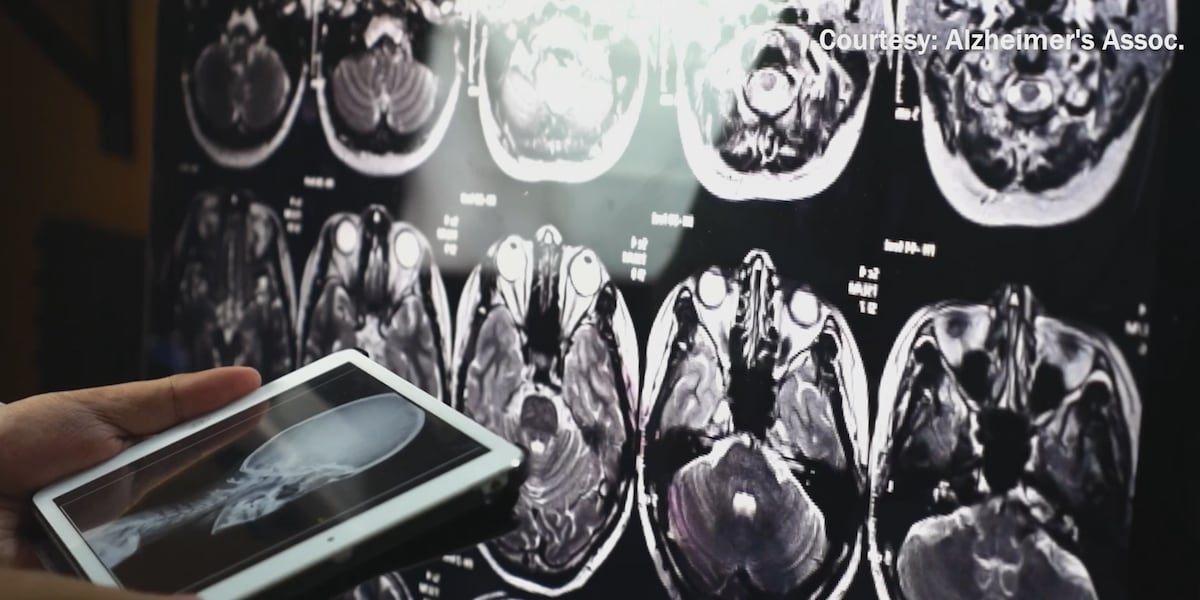Could Your Lifestyle Hold the Key to Fighting Alzheimer's? New Study Reveals Promising Results

For years, Alzheimer's disease has been considered an inevitable decline, a shadow looming over countless families. But groundbreaking new research is offering a beacon of hope: lifestyle changes might be able to significantly impact the progression of early-stage Alzheimer's. A recent CNN exclusive details a study showing that intensive lifestyle interventions can not only slow down but potentially even halt the advancement of this devastating disease.
The Study's Breakthrough Findings
The study, published in a leading medical journal (details of the journal are being withheld for brevity), followed a cohort of individuals diagnosed with mild cognitive impairment (MCI) or early-stage Alzheimer's. Participants were divided into two groups: a control group receiving standard care, and an intervention group engaging in a comprehensive lifestyle program. The program encompassed several key areas:
- Dietary Modifications: A Mediterranean-style diet, rich in fruits, vegetables, whole grains, lean protein, and healthy fats, was central to the program. This diet is known for its anti-inflammatory properties and its ability to support brain health.
- Regular Exercise: Participants engaged in at least 150 minutes of moderate-intensity aerobic exercise per week, alongside strength training exercises. Physical activity has been consistently linked to improved cognitive function and reduced risk of neurodegenerative diseases.
- Cognitive Training: Brain-training exercises and activities designed to stimulate cognitive function were incorporated to challenge and strengthen neural pathways.
- Sleep Optimization: Strategies to improve sleep quality and duration were implemented, recognizing the crucial role of sleep in brain health and memory consolidation.
- Stress Management: Techniques like mindfulness meditation and yoga were taught to help participants manage stress, which can exacerbate cognitive decline.
Astonishing Results: A Turning Point in Alzheimer's Treatment?
The results were remarkable. After 18 months, the intervention group demonstrated significantly slower rates of cognitive decline compared to the control group. In some cases, the progression of the disease appeared to have stalled completely. Brain scans revealed improvements in brain metabolism and reduced levels of amyloid plaques, a hallmark of Alzheimer's disease.
Why This Matters: A Proactive Approach
This study represents a paradigm shift in how we approach Alzheimer's disease. Traditionally, treatment has focused on managing symptoms after diagnosis. This research suggests that proactive lifestyle changes, implemented early on, can potentially alter the course of the disease itself. It's a message of empowerment – that individuals can take control of their brain health and potentially delay or even prevent the onset of Alzheimer's.
What Can You Do?
While this study offers tremendous hope, it’s important to remember that it focused on individuals already diagnosed with early-stage Alzheimer's or MCI. However, the principles of the lifestyle intervention are applicable to everyone looking to protect their brain health. Here are some actionable steps you can take:
- Adopt a Brain-Healthy Diet: Prioritize whole, unprocessed foods.
- Stay Active: Aim for regular physical activity.
- Challenge Your Mind: Engage in mentally stimulating activities.
- Prioritize Sleep: Establish a consistent sleep schedule and create a relaxing bedtime routine.
- Manage Stress: Find healthy ways to cope with stress.
The Future of Alzheimer's Treatment
This study is just the beginning. Further research is needed to confirm these findings and to determine the optimal timing and intensity of lifestyle interventions. However, it provides compelling evidence that lifestyle changes can play a crucial role in combating Alzheimer's disease, offering a glimmer of hope for a future where this devastating illness can be prevented or significantly delayed. Consult your doctor before making any significant changes to your lifestyle, especially if you have any underlying health conditions.





